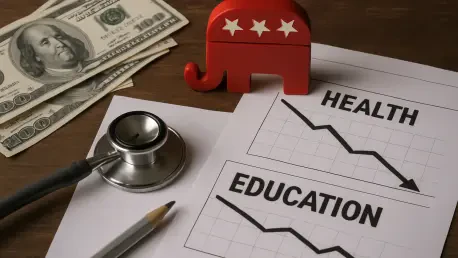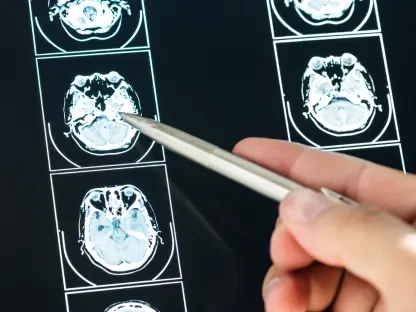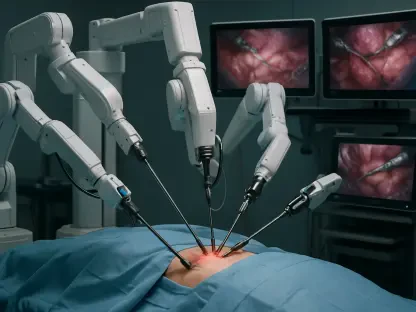A storm of controversy has erupted in Congress over a newly proposed funding bill by House Republicans targeting Labor, Health and Human Services, and Education sectors, igniting fierce criticism from Democrats who argue it endangers the foundation of American well-being. This legislation, currently under intense scrutiny, is accused of slashing critical resources for public health, education, and economic support systems that millions rely on daily. As partisan tensions flare, the bill has become a focal point in the broader debate about the government’s role in safeguarding vulnerable populations and ensuring equitable opportunities. Democrats warn that the proposed cuts could unravel decades of progress, leaving middle-class and working-class families to bear the brunt of ideological priorities. This article explores the multifaceted implications of the bill, delving into its potential impact on health services, educational equity, and economic stability across the nation, while shedding light on the deep political divide fueling this contentious issue.
Public Health Systems in Peril
The funding bill strikes at the heart of America’s public health infrastructure, proposing drastic reductions to cornerstone agencies like the Centers for Disease Control and Prevention (CDC) and the National Institutes of Health (NIH). Programs vital to combating HIV/AIDS, addressing substance use disorders, and supporting mental health initiatives face severe budget slashes, while funding for innovative research is either heavily curtailed or entirely erased. Democrats caution that such measures could paralyze the nation’s capacity to manage ongoing health crises, from infectious disease outbreaks to chronic conditions affecting millions. The ripple effects of these cuts could delay critical interventions and undermine public trust in health systems already strained by recent challenges, potentially leaving communities ill-equipped to handle emergencies.
Beyond immediate program cuts, the legislation threatens to stall medical progress by gutting resources for groundbreaking research initiatives. The elimination of support for key health research entities signals a troubling retreat from innovation, according to critics who argue that this move jeopardizes future breakthroughs in lifesaving treatments. Democrats emphasize that scaling back investments in health research not only hampers scientific advancement but also diminishes America’s global standing in medical innovation. The long-term consequences could mean fewer tools to address emerging health threats, placing an unnecessary burden on future generations to rebuild what is being dismantled today. This aspect of the bill has sparked alarm among health experts who fear a regression in national health preparedness.
Women’s Health and Reproductive Access Targeted
Another deeply contentious element of the bill lies in its impact on women’s health, with funding for essential programs such as Title X Family Planning and Teen Pregnancy Prevention being completely stripped away. Critics argue that these eliminations directly undermine access to basic health services for countless women, particularly those in underserved communities who rely on such programs for contraception and maternal care. Democrats have labeled these cuts as a blatant rollback of personal freedoms, accusing the legislation of prioritizing ideological battles over the tangible needs of families. The loss of these resources could lead to increased health disparities, exacerbating challenges for vulnerable populations already struggling to access care.
In addition to program cuts, the bill introduces restrictive provisions aimed at limiting reproductive health services, including access to abortion and other critical care options. These measures, often referred to as partisan “poison pills” by opponents, are seen as an overreach into personal medical decisions, disproportionately affecting women’s autonomy. Democrats contend that such policies not only endanger maternal and child health outcomes but also reverse hard-fought gains in gender equity within healthcare. The potential fallout includes higher rates of unintended pregnancies and diminished health support for mothers, which could strain social and economic systems further. This segment of the bill has galvanized significant opposition, highlighting a broader struggle over reproductive rights in the legislative arena.
Education Funding Faces Severe Blows
Turning to education, the bill delivers a staggering setback by slashing funds allocated to K-12 schools, with a particular focus on programs like Title I Grants that support low-income students. This reduction threatens to widen existing achievement gaps, as schools serving disadvantaged communities lose critical resources needed to provide equitable learning environments. Democrats assert that these cuts represent a direct attack on the future of young Americans, undermining the foundational role of public education in fostering opportunity. The projected impact includes diminished access to quality instruction and support services, which could hinder student outcomes for years to come and deepen systemic inequalities.
Compounding the damage, the legislation eliminates support for teacher training and community school initiatives, placing an estimated 72,000 teaching positions at risk. Critics warn that this move could devastate the education workforce, leading to larger class sizes and reduced individualized attention for students. The loss of educators would not only strain school systems but also erode the mentorship and stability that teachers provide to young learners. Democrats argue that prioritizing budget cuts over investment in education jeopardizes the nation’s long-term economic competitiveness, as a less-educated workforce struggles to meet future demands. This aspect of the bill has sparked widespread concern among educators and parents alike, who see it as a betrayal of the commitment to future generations.
Economic Support and Worker Rights Undermined
The bill’s implications extend into economic realms, with significant reductions to job training programs and adult education initiatives that are crucial for workforce development. These cuts threaten to limit pathways to employment for many Americans, particularly those seeking to transition careers or gain new skills in a rapidly changing economy. Democrats highlight that such measures hinder economic mobility, especially for working-class individuals striving to improve their circumstances. By scaling back these programs, the legislation risks leaving countless adults without the tools needed to secure stable, well-paying jobs, potentially exacerbating poverty and inequality across diverse communities.
Additionally, workplace protections face alarming rollbacks under the proposed bill, with funding for fair wage enforcement and occupational safety measures taking a substantial hit. Critics argue that this reflects a troubling preference for corporate interests over the well-being of everyday workers, further tilting the economic balance away from labor rights. The reduction in oversight could lead to increased workplace violations, leaving employees vulnerable to exploitation and unsafe conditions. Democrats stress that neglecting these protections undermines the dignity of work and disregards the struggles of millions who depend on robust labor standards. This dimension of the bill adds fuel to the narrative of prioritizing profit over people, intensifying calls for a reevaluation of its priorities.
Deepening Partisan Tensions in Congress
At the root of this legislative battle is a profound partisan divide, with Democrats, under the leadership of Ranking Member Rosa DeLauro, condemning the bill as an extreme manifestation of ideological agendas over public welfare. The markup process revealed stark differences, as nearly 50 amendments proposed by Democrats to mitigate the harshest cuts were largely rejected by the Republican majority. This rejection underscores a broader inability to find bipartisan consensus on fundamental issues like health and education funding. The standoff leaves critical programs in limbo, with their fate hinging on future negotiations that seem increasingly unlikely to bridge the ideological gap dominating current discourse.
The intense partisan friction surrounding the bill also reflects broader societal debates about the government’s responsibility to its citizens. Democrats argue that the legislation represents a deliberate step away from supporting vulnerable populations, prioritizing instead a narrow set of political goals. While some minor concessions were achieved, such as safeguarding certain administrative services, the core cuts to health and education remained intact, fueling frustration among opponents. This entrenched divide suggests that resolving the funding crisis will require significant compromise, a prospect that appears distant given the current political climate. The ongoing clash continues to shape public perception of Congressional priorities, raising questions about the path forward for essential services.
Navigating the Fallout and Future Steps
Reflecting on the debate, it became evident that the proposed funding bill stirred profound concern among lawmakers and constituents alike, as it challenged the very framework of public support systems. The sharp reductions to health agencies, educational resources, and economic programs sparked a fierce backlash from Democrats who saw the legislation as a step backward for societal progress. The intense markup sessions, marked by rejected amendments and limited victories, painted a picture of a Congress deeply divided over fundamental values. Looking back, the struggle to protect critical services underscored the urgency of addressing these cuts before they inflicted lasting damage on communities nationwide.
Moving forward, attention must shift to crafting viable solutions that balance fiscal responsibility with the urgent needs of Americans. Advocacy for bipartisan dialogue remains essential, as stakeholders seek to restore funding to vital areas like health research and K-12 education while safeguarding reproductive rights and worker protections. Policymakers are urged to consider targeted investments that address immediate crises without sacrificing long-term stability. Public engagement will also play a pivotal role, as citizens and organizations push for transparency and accountability in how federal resources are allocated. The path ahead demands innovative approaches to bridge partisan divides, ensuring that the nation’s most pressing challenges are met with thoughtful, inclusive strategies.









